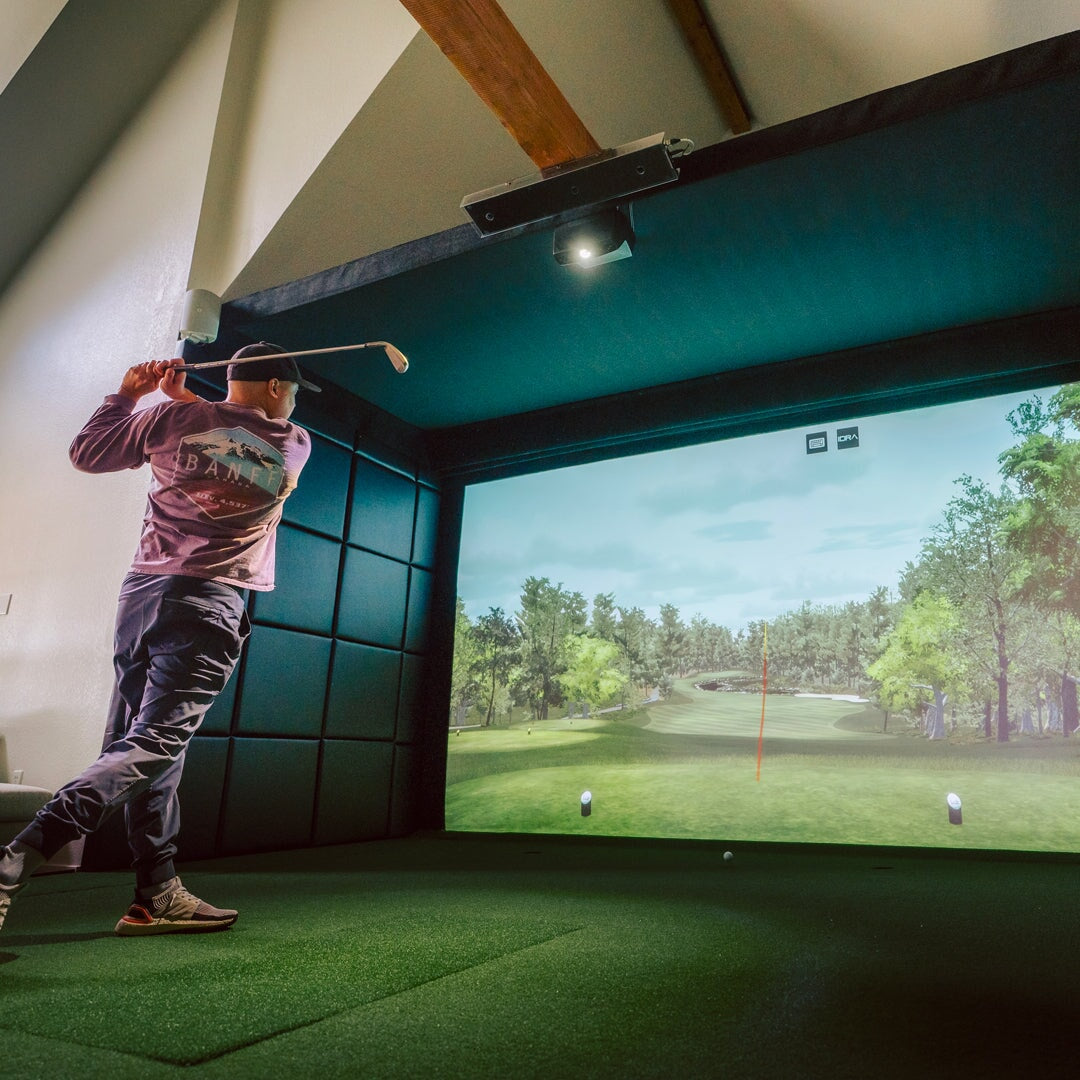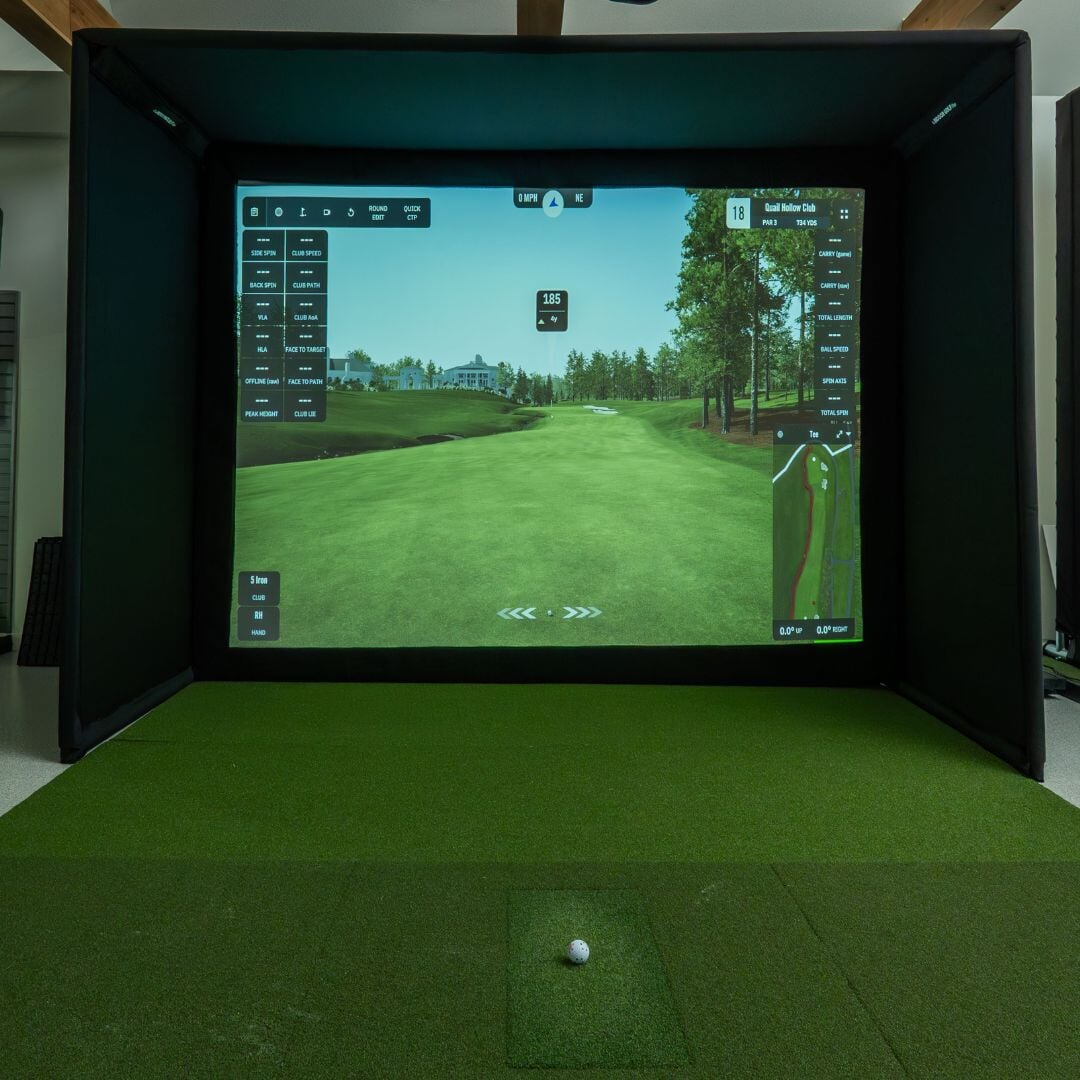
Golf Simulator Wall Pads: Are They Worth It?
Creating the ultimate indoor golf simulator setup requires more than just a quality launch monitor and impact screen. One often overlooked component is wall padding. While it might not seem essential at first, wall pads serve both protective and performance-enhancing purposes. In this blog post, we’ll dive into what golf simulator wall pads are, their benefits, the different types available, and whether they’re worth the investment for your space.
What Are Golf Simulator Wall Pads?
Golf simulator wall pads are foam-backed panels designed to be installed on the side and rear walls around your simulator enclosure. Their primary purpose is to absorb the energy of any stray golf balls, protecting both the walls and anyone nearby. But their benefits go beyond safety.
Wall pads are often made from high-density foam with a durable vinyl or fabric covering. Some are custom-fit to match your simulator enclosure, while others can be installed as standalone panels. They can also enhance the overall look of your setup, providing a clean, professional appearance.
Why Do Golf Simulators Need Wall Pads?
1. Protection From Errant Shots
Even skilled golfers occasionally mishit a shot. A slice or hook could easily send a ball ricocheting off an unprotected wall, leading to property damage or potential injury. Wall pads act as a buffer, absorbing impact and minimizing risk.
2. Improved Safety
Especially in commercial simulator setups or shared spaces, wall padding ensures a safer environment for users and spectators. Flying golf balls can cause serious injury if they bounce back at high speed. Pads help neutralize that risk.
3. Noise Reduction
Wall pads significantly reduce noise levels, especially in smaller or echo-prone rooms. The foam absorbs sound vibrations from ball impact, creating a quieter experience—something that’s appreciated in home environments or offices.
4. Enhanced Aesthetics
Beyond functionality, wall pads offer a polished and cohesive look to your golf simulator room. With options for color, texture, and branding, they can elevate the overall feel of your space.
Types of Golf Simulator Wall Padding
▶ Standard Foam Panels
These panels typically come in 1" to 2" thickness and offer basic protection. They're ideal for home setups or budget-conscious builds.
▶ Acoustic Wall Pads
Designed with additional sound-dampening properties, these are excellent for home simulators in shared living spaces. They serve dual purposes of protection and noise control.
▶ Custom-Fit Enclosure Padding
Some brands, like Carl’s Place or The Indoor Golf Shop, offer padding pre-measured for their enclosures. This ensures a seamless fit and uniform appearance.
▶ DIY Wall Pad Solutions
For the handy golfer, DIY options involve using gym mats or foam boards wrapped in fabric. While cost-effective, these may lack the longevity and finish of commercial products.
Are Wall Pads Worth the Investment?
Let’s break it down:
✅ YES, if:
-
You have a compact simulator room with close side walls
-
Your simulator is located in a finished basement, office, or garage with exposed drywall
-
You want to reduce noise or enhance the visual appeal of your simulator
-
You're running a commercial setup or high-traffic golf sim bay
❌ Maybe Not, if:
-
You already use full side barrier netting or curtains
-
Your simulator is in a wide-open garage or warehouse with plenty of clearance
-
Your ball speeds are low (e.g., putting simulators or junior users only)
Ultimately, wall pads are a valuable safety and design enhancement that can extend the life of your simulator setup while also making it more inviting.
Our Recommendation
If you're looking for a reliable and professional-grade wall padding solution, check out the SIG Wall Padding Kit offered with our SIG10 and SIG12 Golf Simulator Enclosures. These are designed to match your setup precisely and are made from high-impact absorbing materials.
For budget-friendly or custom-shaped spaces, we recommend Carl’s Place Pro Wall Padding or exploring acoustic foam panels that double as both sound and impact buffers.
Final Thoughts
Golf simulator wall pads might seem like an optional add-on, but they deliver serious benefits when it comes to safety, acoustics, and aesthetics. Whether you're protecting your walls, keeping noise levels down, or simply adding a professional polish to your simulator room, wall pads prove their worth over time.
As you build or upgrade your indoor golf setup, consider wall padding as an investment in both performance and protection. It’s one of those accessories you’ll appreciate the first time a ball goes off target.



